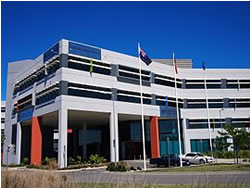 An audit of the Department of Human Services’ design and implementation of a ‘Quality Framework’ for the delivery of its programs has found the task to be “less than effective”.
An audit of the Department of Human Services’ design and implementation of a ‘Quality Framework’ for the delivery of its programs has found the task to be “less than effective”.
In his report, Design and Implementation of the Quality Framework, Auditor-General, Grant Hehir found the framework had been implemented inconsistently.
“Human Services has been less than effective in designing and implementing a Quality Framework that achieves its strategic purpose,” Mr Hehir said.
“While the framework has strengthened quality arrangements in service delivery operations where it has been comprehensively implemented, lower levels of implementation elsewhere in the Department and a lack of integrated reporting on quality, has limited its effectiveness.”
He said Human Services introduced an initiative to create a Department-wide quality framework in 2013 to provide a single set of expectations for ensuring the its services were high quality and met client and Government expectations.
Mr Hehir said the design of the framework was partly effective, with a sound evidence base underpinning its key elements, but it was limited in implementation planning.
He said the Department needed to clarify the roles of two primary governance committees which had not discharged key responsibilities.
“The inconsistent implementation of the framework throughout Human Services has not necessarily compromised quality, as mature quality mechanisms are in place in business areas that have not embraced the framework,” Mr Hehir said.
He identified key learnings for all Australian Government entities from the audit which included ensuring that quality arrangements needed to be fit-for-purpose; that a clear understanding of their need should be determined as a first step; and the implementation phase of any resulting large-scale framework must have top-down leadership.
The Auditor-General’s 56-page report can be accessed at this PS News link and the audit team was Renina Boyd, Nathan Callaway, Pauline Ereman and Andrew Morris.











